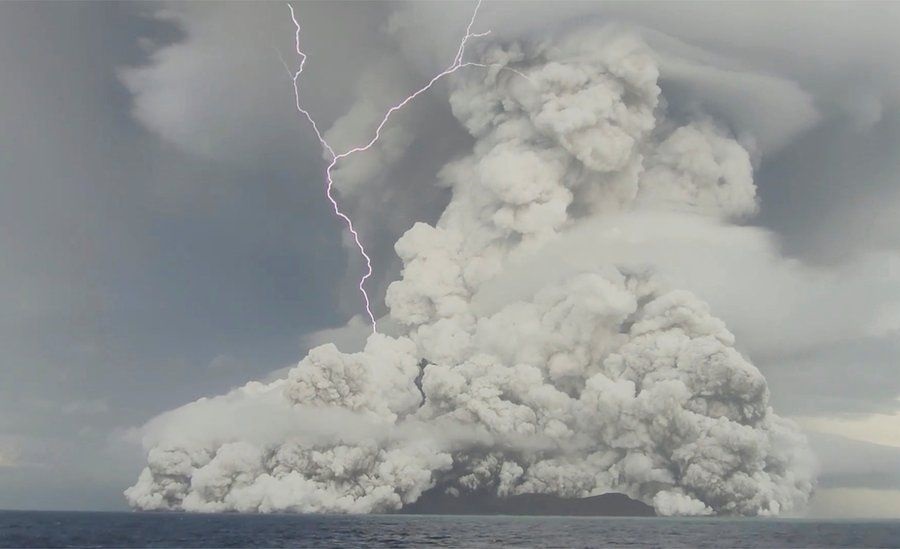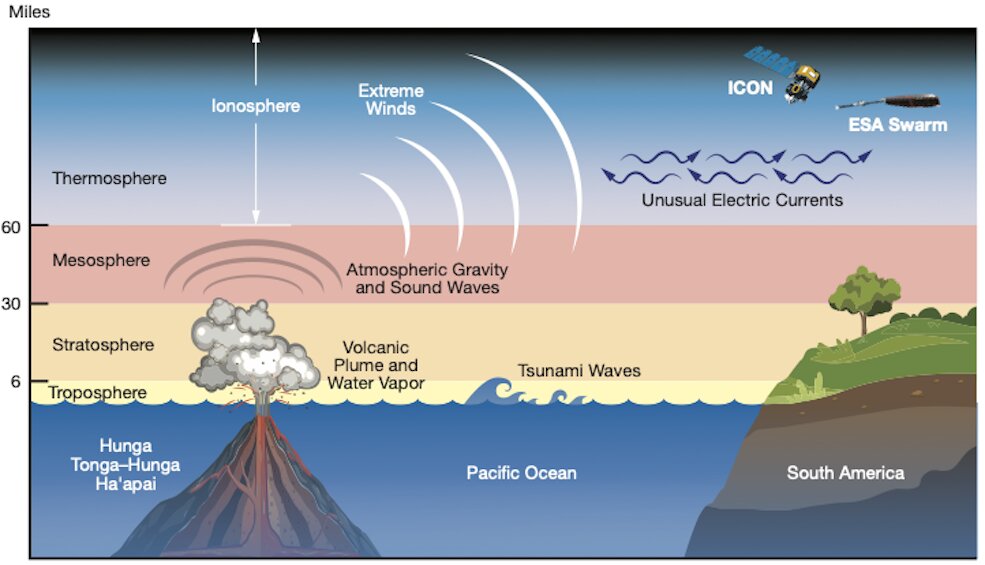Satellite studies show that emissions from the eruption of the Hunga volcano have reached the Earth’s ionosphere at the edge of space. They caused strong winds and currents.

Satellites study the Hunga volcano eruption
Scientists have published interesting studies on the Hunga volcano, made with the help of the NASA Ionospheric Connection Explorer (ICON) satellite and the European Space Agency’s Swarm satellite, the eruption of the volcano, which full name sounds like Hunga Tonga-Hunga Ha’apai, began on January 15, 2022, and became the main event of the beginning of the year. Its satellite images have traveled all over the world.
New research shows that the particles released into the air during the eruption reached not only the Earth’s mesosphere, but also affected its ionosphere. This is a layer of very thin air on the border with space, in which auroras usually occur. The disturbances in it that caused the eruption of the Hunga volcano turned out to be the greatest excitement in it that scientists have ever observed.
During the eruption, the volcano emitted a large amount of dust and water vapor, and also generated strong winds. The last began to spread out to the sides and slowly rise. And as they rose, they became faster due to the decrease in air density.
Electric current in the ionosphere
In the ionosphere, the wind reached 725 kilometers per hour. That is, its speed approached the speed of a jet plane. Simultaneously, electric currents appeared on the edge of space. Particles in the ionosphere often cause an electric current flowing to the east, and it is called an equatorial electrojet. In the event of an eruption of the Hunga volcano, this current increased five times compared to the usual peak power.

Increasingly, the current began to flow in the opposite direction — to the west, and this lasted for some time. Previously, researchers have only seen this during very strong magnetic storms. The study of the consequences of the Hong eruption in general told a lot about the interaction of the Earth’s surface with the ionosphere. It is important to mention that recently scientists have suggested that volcanism could turn Venus into hell.
Previously, scientists did not suspect that the influence of events on the surface of this shell of the Earth could be so strong. Changes in the ionosphere can cause interference to the transmission of satellite signals, especially GPS.
According to phys.org
Follow us on Twitter to get the most interesting space news in time
https://twitter.com/ust_magazine

